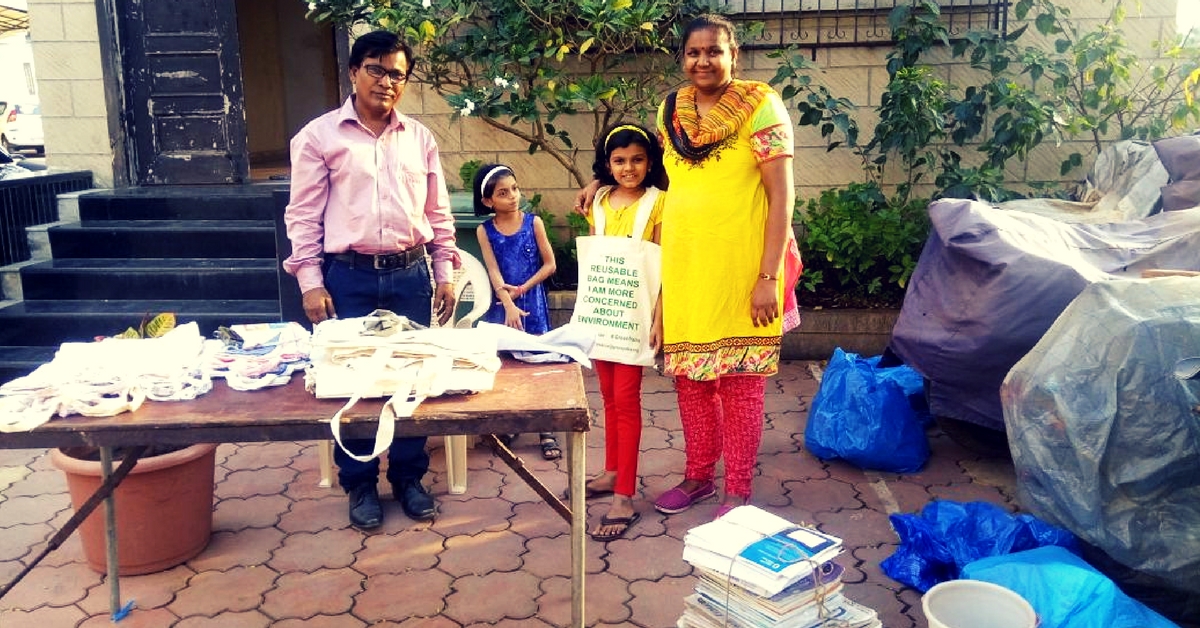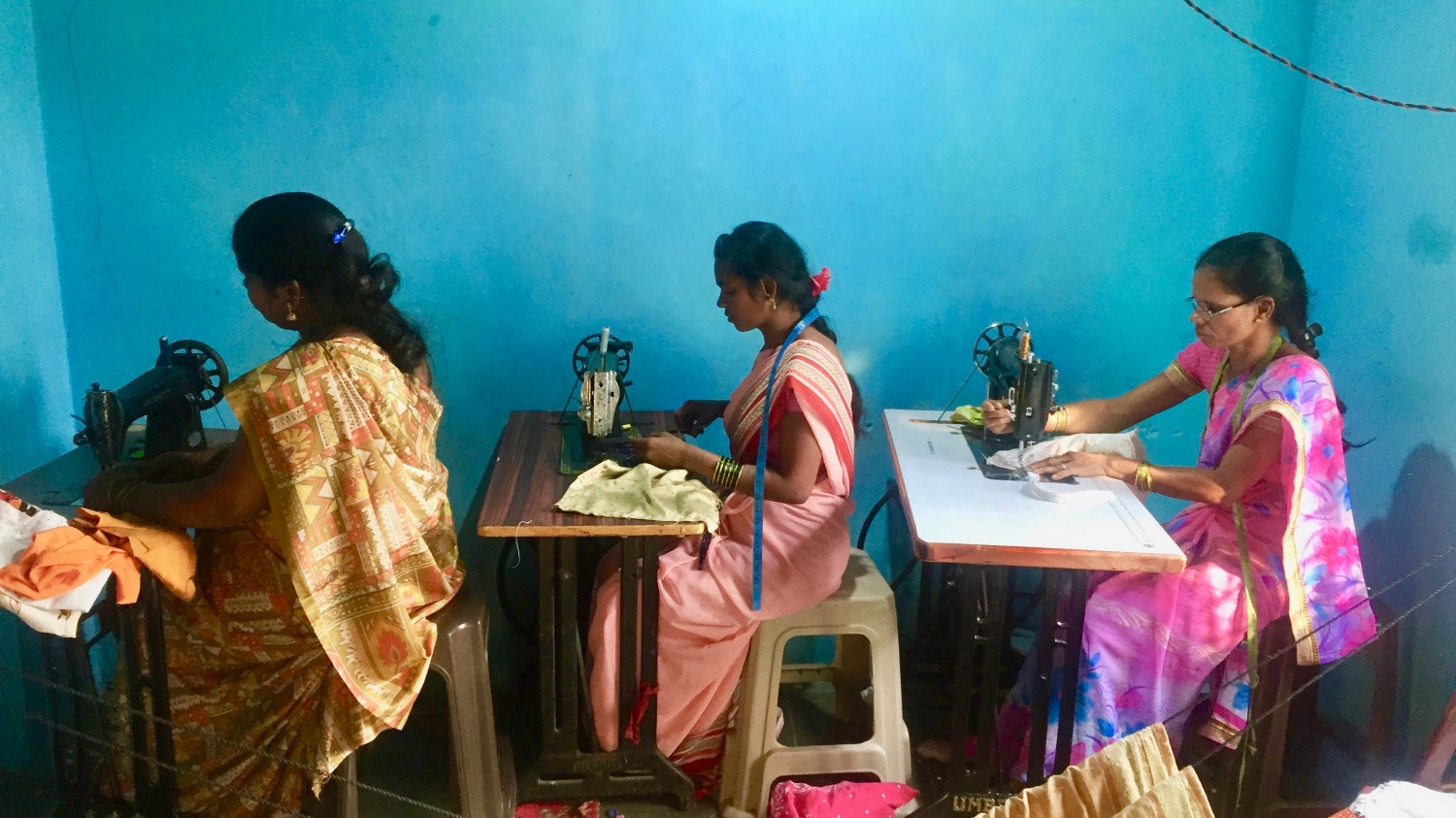Donate Scrap & Win Eco-Bag: This Idea is Helping Mumbaikars Say No to Plastic!
The campaign has been a raging success in Mumbai where this group of environmentally-conscious citizens from the NGO have collected over 100 tonnes of plastic, electronic and other recyclable waste from housing societies and in turn gifted a whopping 20,000 bags across the city.

As the country continues to reel under the pressure of launching campaigns and passing plastic ban orders in different states, one NGO in Mumbai has found a rather innovative way to help housing societies ‘say no to plastic bags.’
Understanding the difficulty of convincing citizens to shell money out of their own pockets to switch to eco-friendly alternatives to plastic bags, Mumbai-based Green Yatra in its unique initiative ‘Bag for Cause’ has decided to gift citizens jute, cotton or cloth bags free of cost, in exchange of household scrap.
The campaign has been a raging success in Mumbai where this group of environmentally-conscious citizens from the NGO have collected over 100 tonnes of plastic, electronic and other recyclable waste from housing societies and in turn gifted a whopping 20,000 bags across the city.

How does the model work?
Under the initiative, the NGO appeals housing societies, companies, corporates, schools, colleges to collect and donate their dry waste and E-waste. In turn, the NGO gifts them both low cost (bags for daily needs as grocery) and better quality designed cloth/canvas/cotton tote or jute bags with quirky environmental quotes and messages on them.
The kind of bag exchanged entirely depends on the weight of waste by persons donating their household dry and recyclable waste.

Most housing societies are encouraged to call the NGO volunteers over when they have at least 100 kg of waste to be donated. Since these societies are scattered across the city, it is always feasible for the NGO volunteers to cover transportation and overhead costs, unless the waste to be collected is in such a volume.
All the collected dry waste is either sent for recycling, or is returned to the industries, or is reused.
What kind of waste can housing societies donate?
1. Dry Waste: Newspapers, old books, notebooks, cartons, cardboard pieces, magazines, printed waste papers, tetra packs, plastic bottles, boxes, bags, empty cans, metal scrap, etc.
2. E-Waste: Items such as appliances, computers, laptops, tablets, mobile phones, camera, fridges, washing machines, dryers, stereo systems, toys, toasters and kettles etc.
Not just bags, if people are interested, they can even opt for the alternative – indoor or outdoor plants in return, instead of a bag.
What is also particularly interesting is that though the central aim is to encourage citizens to give up using plastic bags, the campaign is serving yet another important purpose – women empowerment. Here’s how.
Speaking to The Better India, Green Yatra founder Pradeep Tripathi reveals how these eco-friendly, reusable, economical, durable, washable bags made from cotton, canvas and jute are designed and created by underprivileged rural and urban women in need of employment.
“We identify needy women in the rural and urban area and facilitate them bags stitching, designing training and sewing machines. We are running a training centre in Bhiwandi, Ambadi area dedicated to train and empower tribal women since 2012.
“A woman can make 15-100 bags daily and earn a good amount of money along with taking care of her family and household. The women designing and stitching eco-friendly bags can earn up to Rs 10,000,” says Pradeep.

Available in different sizes and designed to carry three to 20 kgs, these bags truly serve the cause of empowering underprivileged and tribal women and creating a livelihood for them.
The success of the initiative has resulted into the NGO’s phone ringing off the hook to replicate the model in housing societies across India, who wish to donate waste in turn for eco-friendly bags – while also supporting women!
The initiative is currently running successfully not just in Mumbai, but also Pune and Ahmedabad.
The NGO aims to empower over 1000 underprivileged and tribal women in 2018 and replicate the model in over 30 Indian cities in the coming years.
READ MORE: Once Suicidal, This 27-Year-Old Mumbaikar Now Feeds Hundreds Every Day
“Keeping this vision in mind, we are working to set up more training centre in Mumbai, Thane, Palghar and Raigad districts. We are appealing corporates, individuals, housing societies to help us to set up training centres, arrange sewing machines and a transportation vehicle under CSR,” says Pradeep.
We wish them all the very best!
If you are interested in joining the cause get in touch with the Green Yatra team at [email protected] and send them the following details:
1. Full Name:
2. Contact:
3. Email Id:
4. Housing Society/ Company/School/College Name and Address:
5. The number of flats in your housing Society:
Know more about them by visiting www.greenyatra.org.
Like this story? Or have something to share?
Write to us: [email protected]
Connect with us on Facebook and Twitter.
NEW: Click here to get positive news on WhatsApp!
If you found our stories insightful, informative, or even just enjoyable, we invite you to consider making a voluntary payment to support the work we do at The Better India. Your contribution helps us continue producing quality content that educates, inspires, and drives positive change.
Choose one of the payment options below for your contribution-
By paying for the stories you value, you directly contribute to sustaining our efforts focused on making a difference in the world. Together, let’s ensure that impactful stories continue to be told and shared, enriching lives and communities alike.
Thank you for your support. Here are some frequently asked questions you might find helpful to know why you are contributing?


This story made me
-
97
-
121
-
89
-
167













